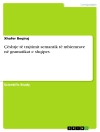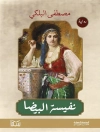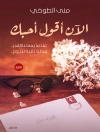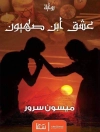The career of Arthur L-F. Askins is celebreated in a panorama of current scholarship on the Iberian peninsula during the Middle Ages and the Renaissance.
This volume is dedicated to Professor Arthur L-F. Askins, whose scholarship on Spanish and Portuguese literatures of the Medieval and Renaissance periods is esteemed by colleagues around the world.
Many North American and European scholars have contributed with essays of an exceptionally high scholarly quality, in English, Spanish and Portuguese, to this wide-ranging tribute, dealing with Spanish and Portuguese literary culture from the end of the fourteenth to the late sixteenth century. Some tackle problems concerning manuscripts, texts, and books; other essays are literary, theoretical, and interpretive in nature; topics range from medieval and Renaissance epic and love poetry to spiritual, travel and chivalric literature, as well as balladry and
pliegos sueltos.
CONTRIBUTORS: Gemma Avenoza, Nieves Baranda, Vicenç Beltran, Alberto Blecua, Pedro M. Cátedra, Manuel da Costa Fontes, Alan Deyermond, Aida Fernanda Dias, Dru Dougherty, Thomas F. Earle, Charles B. Faulhaber, María del Mar Fernández Vega, Helder Godinho, Angel Gómez Moreno, Thomas R. Hart, Ana Hatherly, David Hook, Victor Infantes, Paul Lewis-Smith, Beatriz Mariscal Hay, Aires A. Nascimento, Joao David Pinto-Correia, Dorothy Sherman Severin, Harvey L. Sharrer.
Martha E. Schaffer is Associate Professor of Spanish at the University of San Francisco; Antonio Cortijo Ocaña is Professor of Spanish at the University of California.
Inhoudsopgave
Introduction – Charles B Faulhaber
Lope García de Salazar: la formación de un bibliófilo y de su biblioteca – Gemma Avenoza
El camino espiritual a Jerusalén a principios del Renacimiento – Nieves Baranda
Tipos y temas trovadorescos. XX. Fernan Velho – Vivenç Beltran
Cómo vive un soneto: sobre ‘Perdido ando, señora, entre la gente’ – Alberto Blecua
Del claustro al pliego suelto: la obra de Antonio de Espinosa – Pedro M. Cátedra
The Bestiary Tradition in the
Orto do Esposo – Alan Deyermond
As Diffinçooes de Calatraua (1468), numa Versao Portuguesa – Aida Fernanda Dias
Damiao de Góis’s Translation and Commentary on Cicero’s
De senectute – Thomas F. Earle
Muestrario de incunables catalanes de la Biblioteca Colombina – Maria del Mar Fernandez Vega
Between Ballad and Parallellistic Song:
A Condesa Traidora in the Portuguese Oral Tradition – Manuel da Costa Fontes
Dois casos de heróis sem terra: Rodrigo e Guillaume d’Orange – Helder Godinho
El
Tratado del menosprecio del mundo de Juan del Encina? – Angel Gomez Moreno
Cantiga and
Canso – Thomas R Hart
Luís Vaz de Camoes and Fernao Mendes Pinto: A Comparative Overview of their Lives in Asia and After – Ana Hatherly
New Dates and Hypotheses for Some Early Sixteenth-Century Drama Texts Suggested by an Alcalá Annotator of Nicolás Antonio – David Hook
New Dates and Hypotheses for Some Early XVIth-century Dramatic Texts Suggested by an Alcalá Annotator of Nicolás Antonio – Paul Lewis-Smith
Los pliegos sueltos del siglo XVI después del
Nuevo Diccionario – Victor Infantes
‘Moriscos los mis moriscos’: observaciones sobre el romancero carolingio – Beatriz Mariscal Hay
Manuscritos e textos dos Príncipes de Avis: o
Leal Conselheiro e outros manuscritos: problemas de deriva filológica e tentativa de reintegraçaofilológica e tentativa de reintegraçao – Aires A. Nascimento
Autobiografia, Cultura e Ideologia em
Peregrinaçao de Fernao Mendes Pinto – Joao David Pinto-Correia
The
Sepultura de Macías by San Pedro – But Which San Pedro? – Dorothy Sherman Severin
Tablante de Ricamonte before and after Cervantes’
Don Quijote – Harvey L Sharrer












